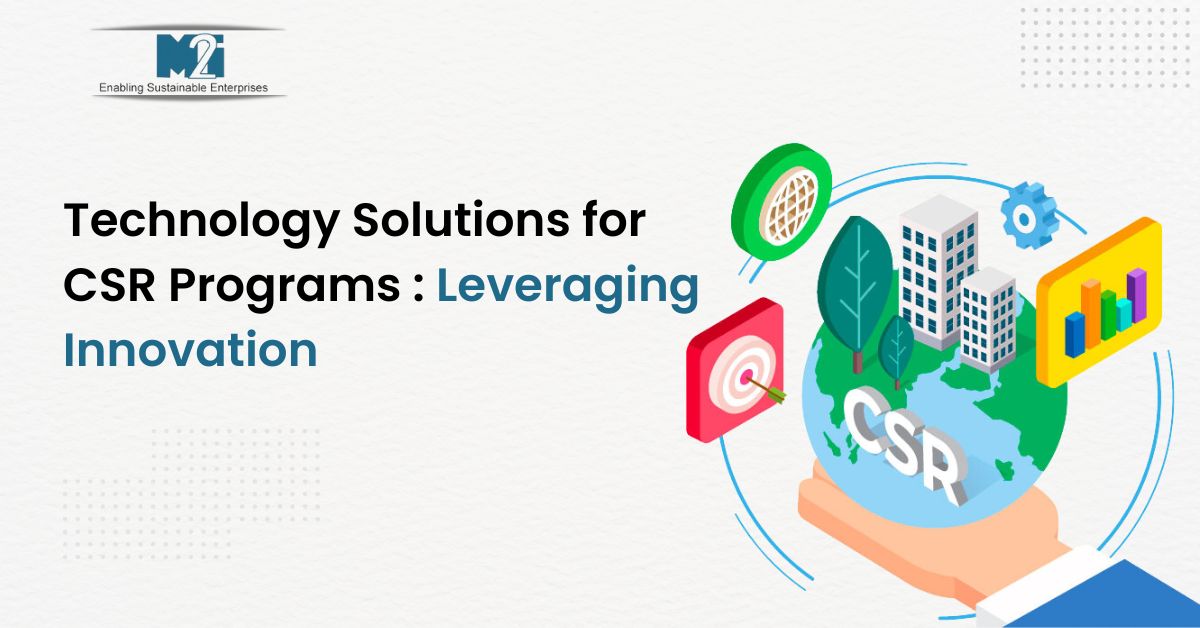
Technology Solutions for CSR Programs : Leveraging Innovation
Technology Solutions for CSR Programs
Technology Solutions for CSR Programs is no longer just a buzzword; it's a powerful tool for businesses to drive positive change. With the advent of technology, CSR programs can now achieve even greater impact and efficiency. In this article, we'll explore the transformative potential of technology solutions for CSR programs and how they are reshaping the landscape of corporate responsibility.
The Evolution of CSR
CSR has come a long way from traditional philanthropy. Today, it encompasses a strategic approach that aligns a company's values and goals with initiatives that benefit society. This evolution has given rise to a demand for measurable, data-driven results and increased transparency in CSR efforts.
The Role of Technology
Technology solutions have emerged as a game-changer in the world of CSR, offering innovative ways to address societal challenges while enhancing corporate performance. Here's how technology is shaping CSR programs:
-
Data Analytics: Technology allows for the collection, analysis, and visualization of data on CSR initiatives. This data-driven approach helps in assessing the impact of programs and making informed decisions for future strategies.
-
Communication and Engagement: Social media, mobile apps, and online platforms enable companies to engage with stakeholders effectively. They can communicate CSR achievements, gather feedback, and foster a sense of community involvement.
-
Transparency: Blockchain technology ensures transparency in the allocation and use of CSR funds. It provides a tamper-proof record of financial transactions, ensuring that contributions reach intended beneficiaries.
-
E-Learning and Skill Development: Online training platforms facilitate skill development and education initiatives, empowering communities with the knowledge and tools they need to thrive.
-
Remote Monitoring: IoT (Internet of Things) devices allow for real-time monitoring of projects, especially in sectors like healthcare and environment, ensuring efficient resource utilization.
-
Crowdsourcing: Crowdsourcing platforms enable companies to tap into the collective wisdom of the public, engaging them in solving social challenges and generating innovative solutions.
Success Stories
Several companies have already harnessed the power of technology for their CSR programs:
-
Microsoft: Through its AI for Good initiative, Microsoft uses artificial intelligence to address global challenges such as accessibility, environmental sustainability, and healthcare.
-
Salesforce: Salesforce.org provides cloud-based technology solutions to nonprofits, enabling them to better manage their operations and engage with donors and volunteers.
-
Google: Google's CSR efforts include technology solutions for education and economic empowerment, such as Google for Education and the Google Impact Challenge.
-
IBM: IBM's Corporate Service Corps leverages data analytics and AI to help communities address issues ranging from disaster response to economic development.
Conclusion
Technology solutions are revolutionizing the way CSR programs operate. They offer unprecedented opportunities for companies to make a positive impact on society while achieving their business objectives. Embracing technology in CSR allows for greater transparency, accountability, and scalability, ultimately driving meaningful and sustainable change. As CSR continues to evolve, integrating technology will be key to unlocking its full potential and ensuring a brighter future for all.